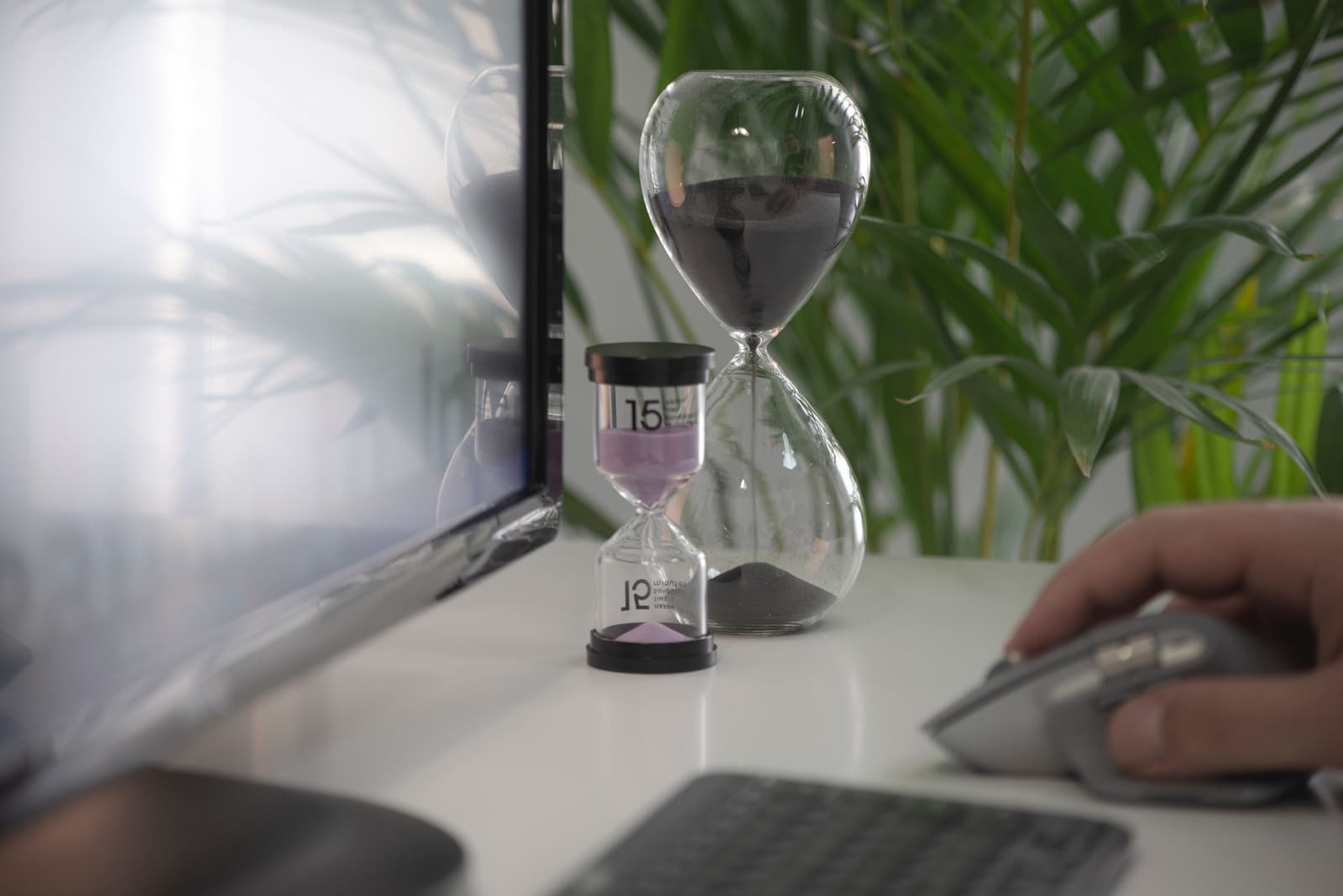
Digital Nomad Taxes: A guide
Ah, the digital nomad lifestyle. Far-flung destinations, exotic food, friends around the world… and complicated taxes. Not to worry. This comprehensive tax guide for digital nomads will answer your FAQs.
Article contents
− +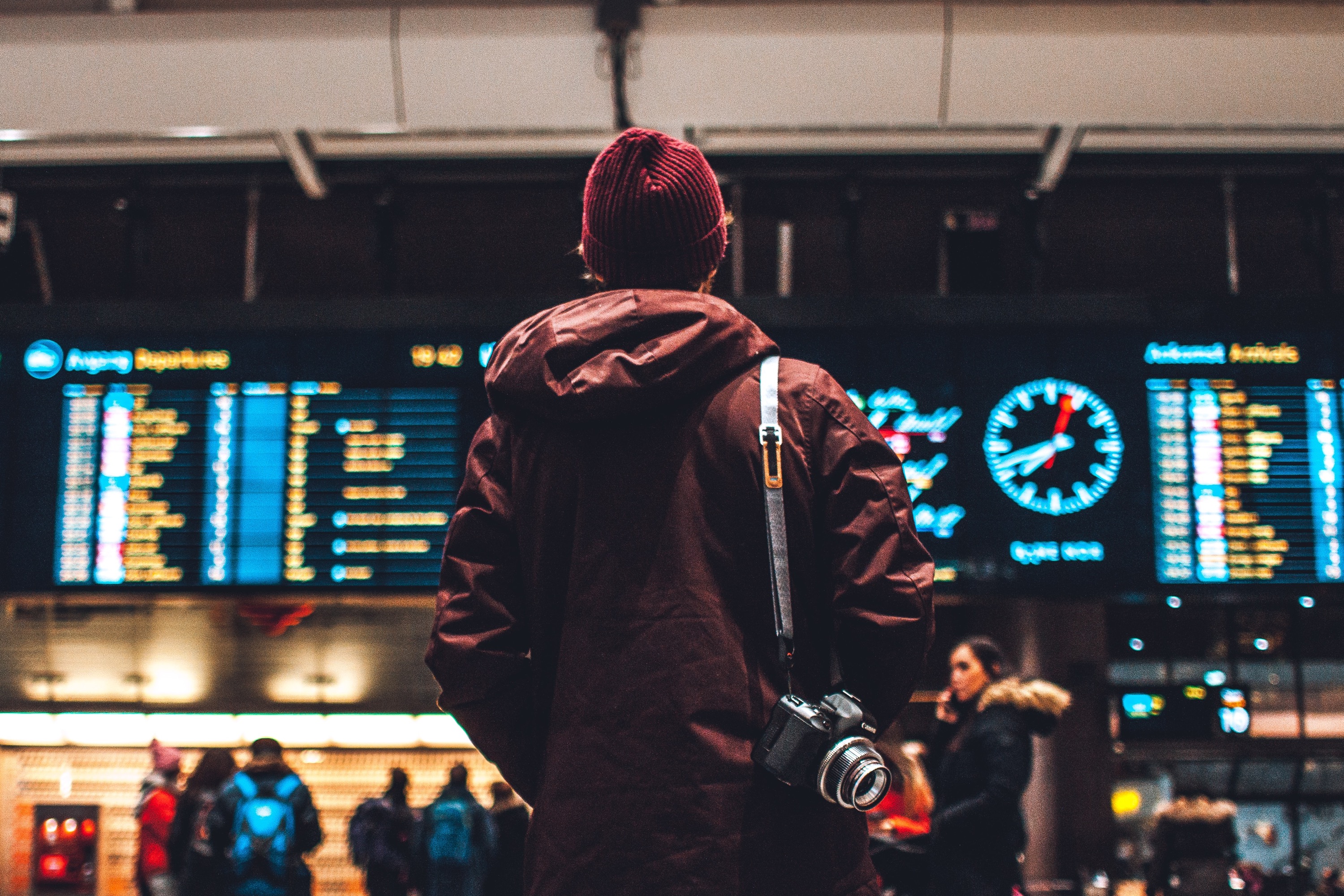
The digital nomad lifestyle comes with lots of benefits, and one big drawback: taxes. Living abroad and travelling while you work puts you in a grey area when it comes to tax preparation and filing, and getting your head around it can be a challenge.
We sat down to discuss this topic with Lauren Thiel, a tax professional and founder of The Real Thiel, a service that helps creative freelancers of all sorts, including those who travel frequently.
In this article, we’ve put together her best advice, along with some general tips to make filing taxes as an Australian digital nomad a lot easier.
Start with the basics: Rounded’s tax guide
Though digital nomads face some unique circumstances, it’s still important for travellers to have a good understanding of how sole trader taxes work in general.
Our free Ultimate Guide to Freelancer Taxes is a great place to start:
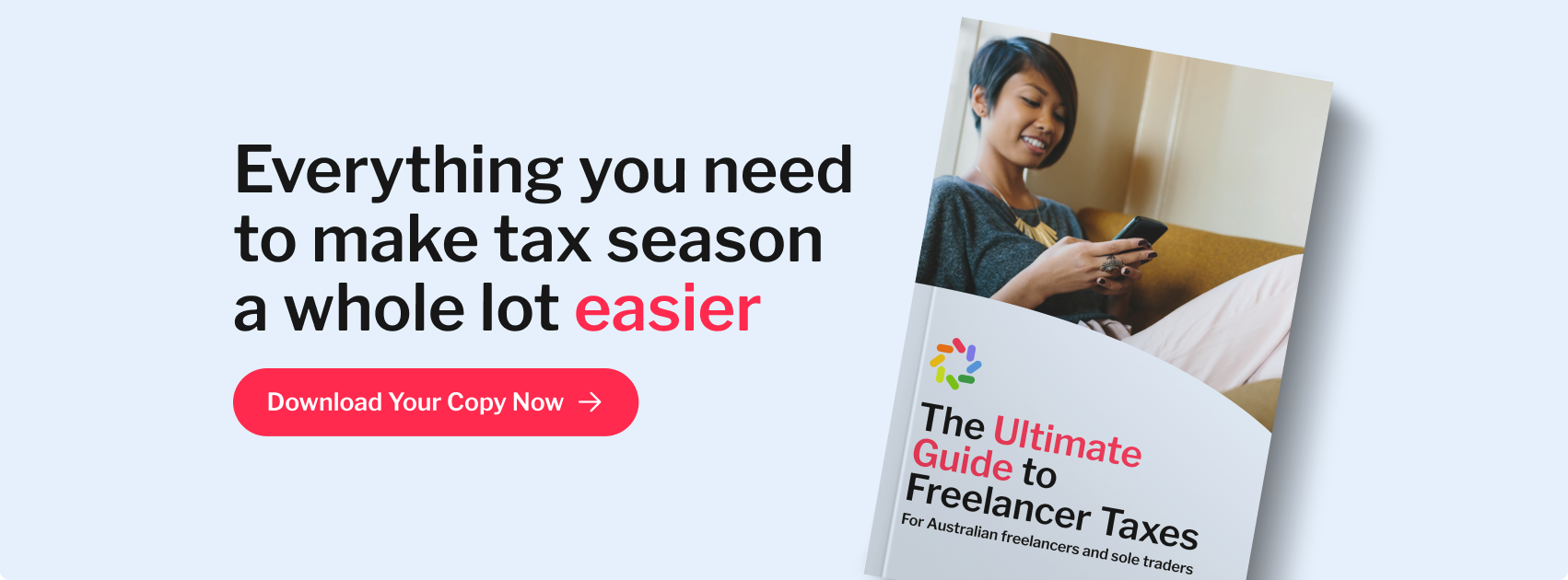
You may also find some of these articles from our blog helpful:
• What can you claim on tax? A guide for sole traders
• Financial tips for creative freelancers
• Is meeting a client for coffee tax deductible?
How to do your taxes while on the road
Digital nomads have to learn how to conserve space—your suitcase or backpack has to be down to just essentials.
So how can you keep track of your taxes while on the road, without having to cart around a folder of receipts and paperwork?
Lauren recommends digitising your tax processes.
“You’ll need a good digital methodology for tracking things like expenses and filing your quarterly taxes while on the go,” she said. “The best option is an accounting platform like Rounded, where you can store copies of receipts and automate your expense tracking by hooking up your bank account. Even if you aren’t using Rounded, keep digital copies of receipts in a Google Drive folder so you don’t lose them along the way.”
When things get hectic, hire an accountant
Many freelancers hire tax professionals to help them stay on top of their financial obligations to the ATO. Digital nomads in particular can see major benefits from having a tax expert in their corner as well.
“Things change a lot year to year for digital nomads,” Thiel said. “Your residency may change, where and why you’re travelling will be different, and so on. A tax professional can help you sort all of this out and stay organised no matter where you are.”
If you’re on the lookout for a tax accountant, we have a guide here: Do I need a tax accountant, a bookkeeper, or both?
Travel expenses: What counts and what doesn’t?
One of the trickiest parts of digital nomad taxes is expenses. When you’re travelling and working at the same time, how do you know what counts as a travel expense?
According to the ATO, you can only claim travel expenses when they occur “in the course of performing your work duties.” In other words, if the travel is required for your work, you can claim some or all of your transportation costs (including flights), hotels, and meals as business expenses.
However, if you’re travelling for fun and just happen to be working as you go , then those travel costs likely cannot be counted as business expenses.
A good rule of thumb: Ask yourself, “Could I just as easily do this work from home, or do I need to travel to get it done?”
If you could do it from home, chances are you can’t claim it as an expense.
Here’s are a few examples:
Example One: You have a client in London, and you fly there specifically to work in their offices and provide training. In this scenario, you likely can claim your flights, any fuel you use while driving, and accommodation as business expenses.
Example Two: You have friends living in Los Angeles, so you fly there to visit them for a month. You plan to work while you’re there on your freelance business, but you have no clients or business events in LA. In this case, you likely can’t claim any of your travel expenses, as you could just as easily do your work from home.
Example Three: You are flying to Perth to attend a professional conference for three days. You plan to spend another week after the conference, to do some sightseeing and surfing. In this case, you may be able to claim a portion or all of your flights to and from Perth, as well as your hotel accommodation and any other expenses you incurred during the conference. Anything that happened after the conference, however, could not be claimed.
The more complicated your travel gets, the more important it is to have a tax professional in your corner.
“Our job,” Lauren explained “is to help you get the maximum volume of legal deductions, while keeping you from risking an audit by claiming things that aren’t deductible.”
Keeping a diary for travel expenses
If you do plan to do a lot of travelling specifically for work, keep a journal of your expenses for tax purposes. The ATO recommends doing this if you’ll be away from your Australian home base for six nights or more in a row.
This journal should track your dates of travel, your destination, and any work-related expenses you incur while there, including meals you purchase and your accommodation bookings.
This record will not only help you keep track of your travel expenses, but you can also use it as documentation if the ATO has any questions about what you’ve claimed and any apportioned percentages.
That’s why it’s a good idea to make your travel diary digital. Create a simple Google spreadsheet or save a Word document to a Dropbox. You can also record your travel dates with details on your digital calendar.
Here’s an example of a travel diary from the ATO:
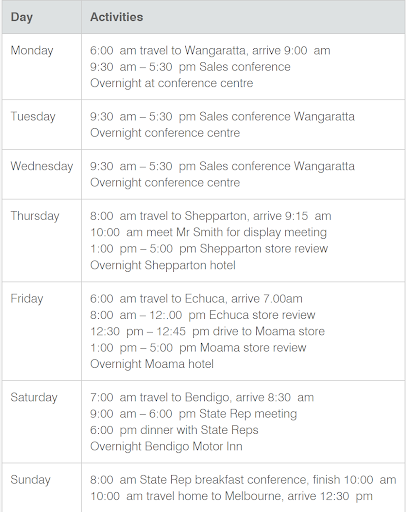
Figuring out your tax residency
Travelling a lot can affect your legal status as a tax resident, depending on how much time you spend away from Australia and what you do while you’re in another country.
The ATO uses what's known as the Resides Test to determine whether you are a tax resident in Australia for a specific tax year. There is no specific rule for how long you can be out of the country before you have to change your tax residency.
Instead, your Australian tax residency is based on a number of factors, including your behaviour and routines while in Australia. According to the ATO, they will consider things like:
• Are you in Australia with some level of consistency?
• Do you have family and social ties to Australia?
• Do you have an established routine in Australia?
• Do you lease or own a home in Australia?
You can learn more about Australian tax residency on this page from the ATO.
Taxes shouldn’t hold you back from living an exciting, fulfilling life as a digital nomad. With the right software and a tax professional in your corner, you can take your business on the road and still come out on top when it’s time to file.
Cover Photo by Erik Odiin on Unsplash
Join newsletter
ABOUT ROUNDED
Invoicing and accounting software for sole traders. Get paid faster and relax at tax time.
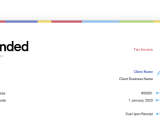


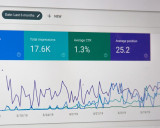









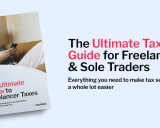












-p-1600.jpeg)
